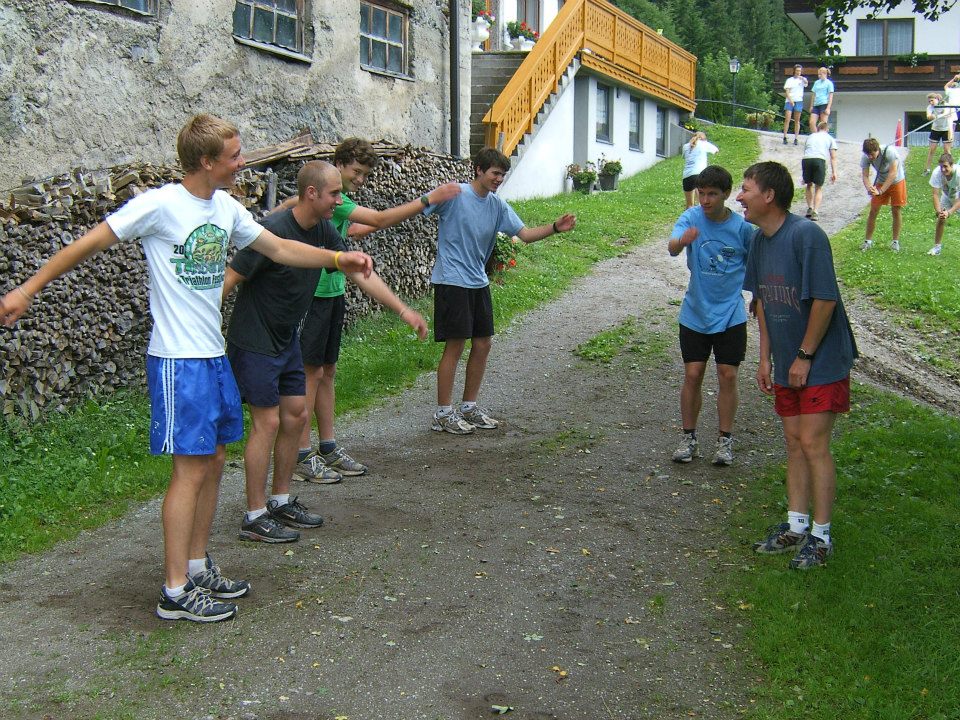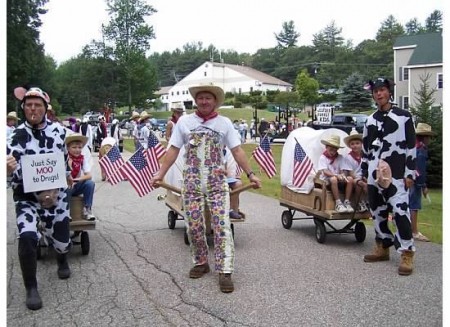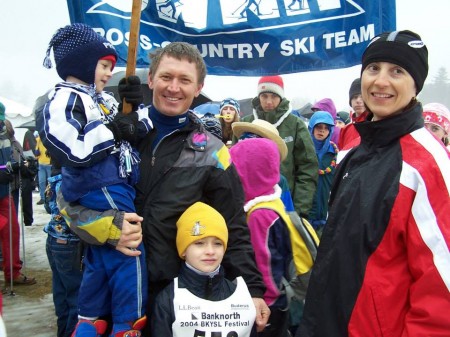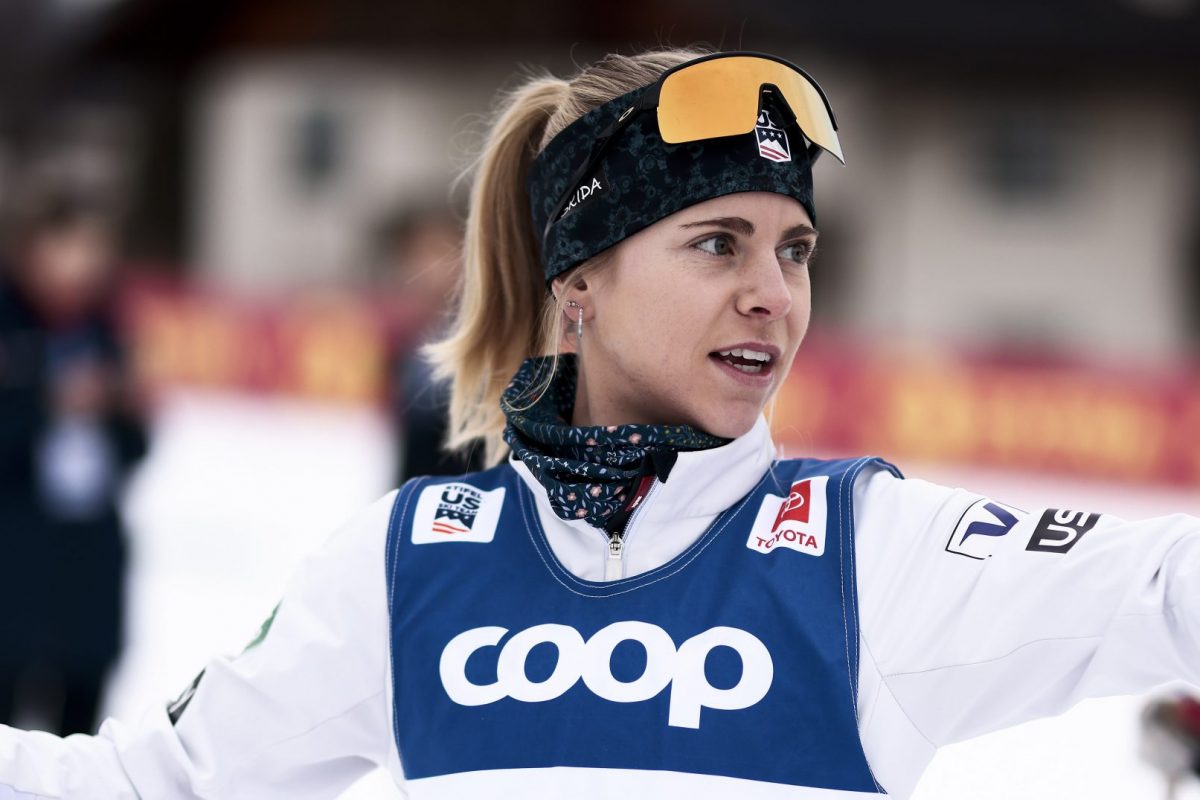
Almost ten days ago now, the U.S. ski community lost one of its most valued members: Igor Badamshin, who died of a heart attack while out skiing.
“He was in an area that he really enjoyed, and he skied on the Birkie trail, and it was a beautiful day,” CXC Executive Director Yuriy Gusev told FasterSkier. “He loved classic skiing, and so he was out classic skiing. And he had come to that area to help his friends with an event.”
Although Badamshin was born in the Soviet Union and even represented them in the Olympics, it was arguably the United States where he had the biggest impact on skiing. Badamshin worked hard to establish grassroots skiing in two separate regions, starting at Gunstock Nordic in New Hampshire before moving to CXC.
Badamshin originally came to the U.S. with his wife, Nina Gavrilyuk, and settled near Gunstock, where they began coaching.
“Igor moved to the US with Nina and [their daughter] Jenia when I was in 8th grade,” Craftsbury Green Racing Project athlete and Gilford, NH, native Alex Howe wrote in an e-mail to FasterSkier (he also published on his blog).
“At the beginning it was hard for them to start coaching because of the language barrier,” Howe explained. “Nina was very quiet and got her point across slowly. Igor would just say whatever he was thinking even if the sentence had little to no meaning in English. On one occasion in particular Igor misplaced the word ‘sheet’ with the word ‘shit.’ He looked around the club house confused as to why everyone was laughing when he asked, ‘Where is the shit of paper?’ in a thick Russian accent! All he wanted to do was look at the interval times from that afternoon.”
Despite the language confusion, it was clear that Badamshin and Gavrilyuk were excellent coaches, as the Gunstock team began to rack up top finishes. Howe and his older sister Katrina were on the roster, as well as Dylan McGuffin, Sam Evans-Brown, the Stark family. Their athletes often packed the roster of New England’s team to junior national championships, and many later packed the startlists in college races as well.

“Igor and Nina were a perfect balance for each other,” Howe remembered. “Nina would run the serious part of the practice and Igor was there at the end to make sure we all got enough games and jokes in for the day.”
At the Eastern Cup race this weekend, the New England Nordic Ski Association held a moment of silence for Badamshin.
After establishing Gunstock as one of the top clubs in the east, Badamshin left to spread his gospel to the Midwest (Gavrilyuk still coaches at Gunstock). He began a relationship with CXC as soon as the program started an elite team in 2007.
“First he was just a volunteer and played a role as the CXC High Performance Advisor,” Gusev said. “He helped a lot – he came and spent some time with Bryan Fish and myself, and he had all this experience. We didn’t have any experience working with athletes in a program of that level. So he came to camps and would sit down with us and talk about training. He would give advice to Bryan about how to design a training plan.”
Gusev called Badamshin instrumental in developing both the senior and junior performance programs at CXC, as well as helping the other coaches gain experience and skill. In the seven years since, the organization has grown and grown – and Badamshin was part of it all.
“There was no project that would be impossible for him,” Gusev said. “He was so motivated for everyone to take these things on. It will be hard to replace, that’s for sure.”
But as Howe had alluded to, it wasn’t his experience or his training plans that made him so beloved. It wasn’t just that he made athletes fast. It was that he was just a fun guy to be around.
“He was like Blades of Glory on roller blades. He could do all sorts of gymnastics that would surprise the heck out of you. He spent a whole day making Russian dumplings for team dinner once by scratch that were unbelievable. Starting to get sick? Take a shot of Vodka. Cant sleep? Take a shot of Vodka. Have a hangover? Probably should drink move Vodka. (I’m just kidding about the last one.) He will beat you in arm wrestling. He will put weights on your feet, tell you to ski, and you will do it, because although it may have been lost in translation, there is a sparkle behind those eyes that is trying to tell you something. Igor will be missed by many, and I hope that everyone will remember to live life with vigor”— Jennie Bender, Bridger Ski Foundation, CXC alum
“He was the best with typical American teenagers,” Gusev marveled. “Juniors just loved working with him. He could connect so well, better than anyone I’ve ever seen. And he loved it, it was his biggest passion.”
“The youngest kids would always ask to play ‘pancake,’ which consisted of Igor flipping them in the air and catching them, while the older kids would try to best him in his famous wrestling matches,” Howe remembered of his early days at Gunstock “I always felt like Igor and I got along right from the get go.”
And for Howe in particular, Badamshin provided a motivating training partner. In general, Gusev said, Badamshin didn’t talk about his past: athletes might not realize that he owned a World Championships medal in the relay, or placed fifth in individual races at World Championships not once, but twice.
Yet he was obviously a great athlete, and still relished playing at one sometimes.
“All the memories that I have of training when I was a junior are filled with adventures with Igor,” Howe wrote. “He was always there to push me to train harder, while keeping every practice fun. Igor didn’t always ski around every loop with me, but it always seemed like he would show up at the top of the biggest downhills with a big grin on his face daring me to race him down the hill. On days where the other guys didn’t show up to practice he would jump right into any interval session to push me, even if he had just worked all day pulling old snow-making pipes down the alpine slope for next years snow-making system.”
So when Badamshin left New England, it was a tough loss. Gusev doesn’t remember it seeming too hard for his new employee to relocate, but then again, it’s not like Badamshin would admit it if it had been.

“I never spoke with him about whether it was easy or not,” Gusev said. “But he enjoyed what we had for him to do here, that’s all I can say. He never shared, if he had some challenges, he wouldn’t talk about it with many people. He would just smile. He was a very interesting individual in that regard.”
Badamshin may have been getting older, but nothing had changed. Jessie Diggins, now a U.S. Ski Team member and World Champion who trains with Stratton Mountain School’s T2 team, got her start as a junior with CXC.
“He always lead by example, and wasn’t afraid to do the entire interval set right alongside his athletes,” Diggins said of Badamshin.
“He could show the elite athletes up any day of the week,” Jennie Bender, another former CXC athlete now at Bridger Ski Foundation, agreed.
Gusev also praised his ability to explain ski technique to athletes of any level.
“He had a very special way of explaining things, especially to kids,” he said. “It was simple, simple but really conveyed what he was trying to explain, even with really complex things. That really worked for all of our athletes, from juniors to masters skiers and elite athletes.”
Finally, training with Igor was never boring because the plan was just a little bit different than that of most American coaches.
“His experience came from the coaches that he worked with, taking the things that he felt were really beneficial to him as an athlete,” Gusev said. “He never had the same workout twice. He could have had you do 20 level two two-minute interval workouts, but none of them would be the same. I think that’s very special. You have to make training very interesting and exciting so that it’s something athletes are looking forward to.”
When the Russian website skisport.ru published a notice of Badamshin’s death, dozens of commenters weighed in. Here’s a sampling of their (translated) thoughts.
“We saw him at the last American Birkie, and he was so open, friendly, cheerful, and young … try not to forget …”
— Vladimir Kochetov
“This is very sad… I am opening my notebook and looking at the autograph he signed for me in 1993. What a vivid memory!”
— Nikolay Grafov
“Igor was an open, friendly, and responsive guy! Let him remain that way in our memory.”
— Oleg Petrov
After helping to get the CXC elite team started, he also worked with the CXC Academy, a junior program. It was an obvious and perfect fit. Badamshin now had an entirely new set of juniors to joke around with, impress, and make fast.
“It was fun to see him coach the juniors because he was absolutely perfect for the job – full of energy, smiles, fun ways to make a ski entertaining while still getting his technique or training points across,” Diggins wrote in an e-mail. “I remember him teaching the juniors a fun ‘Russian jumping game’ at an REG camp, and then of course he’d throw himself right into the game, laughing and trying to out-do the juniors.”
When Fish left to join the U.S. Ski Team coaching staff, Igor took over the reins of the elite team as head coach for the 2012-2013 season.
“Igor had a great playful sprit, which drew him to the juniors more than to the Elite squad,” Bender wrote in an e-mail to FasterSkier. “However, as one who enjoys that in a fellow human being, his energy was a valued addition that year.”
Naturally gregarious herself – the tagline on her website is “I cannot be contained” – Bender continued to flourish under Badamshin’s coaching and skied to her first national championship, in the classic sprint.
But it was not so much the training as the playing that bring her the best memories of Badamshin.
“I used to pretend box with Jason Cork before races to get amped up,” Bender wrote. “We would try to jab at each other below the neck, and I’d usually lose because Jason has got a quick punch, but it always made me laugh and get in a good mindset. When Igor became the elite coach, at one race I tried to get him to pretend box with me too. He knocked my nose by accident and it started bleeding right before a race… He felt bad but it was pretty funny.”
For most of Badamshin’s friends, this loss is unimaginable.
It is for Howe, too – who felt like he already lost Badamshin once.
“For a long time after Igor left for CXC I felt a bit betrayed by him,” Howe admitted. “I thought he would never be able to move somewhere and have as much fun as he did training with me. In hindsight I know that it was not me that provided the fun. Igor could make every minute into an entertaining one and could turn any situation into a game.”
The second time is even more painful.
“I have missed my training partner over the past years and miss him even more now,” Howe wrote. “He was phenomenal as a coach, inspirational as a person, and irreplaceable as a friend.”
Epilogue: Gusev and CXC are creating an “Igor Badamshin Fund” to help young athletes achieve their international racing dreams. Donations towards Igor Badamshin Fund can be mailed to CXC Skiing, P.O. Box 930442, Verona, WI 53593 with “IB Fund” on the memo line. Gusev explains it like this: “We’re trying to establish a fund in his name to help young talented athletes with scholarships to compete at the U18 Championships in Europe and World Junior Championships. We thought, what would be the most in keeping with his loves? That would be something he would enjoy.”
Chelsea Little
Chelsea Little is FasterSkier's Editor-At-Large. A former racer at Ford Sayre, Dartmouth College and the Craftsbury Green Racing Project, she is a PhD candidate in aquatic ecology in the @Altermatt_lab at Eawag, the Swiss Federal Institute of Aquatic Science and Technology in Zurich, Switzerland. You can follow her on twitter @ChelskiLittle.



